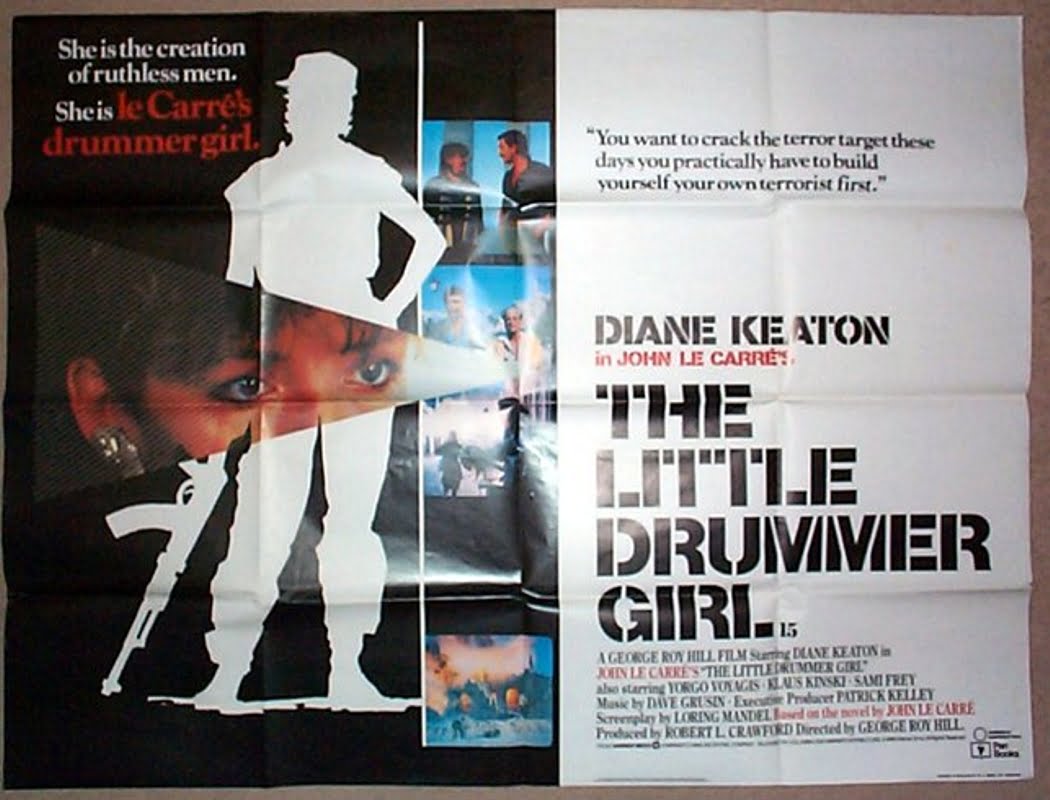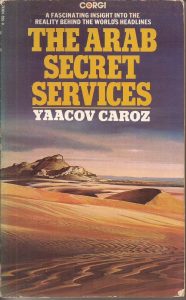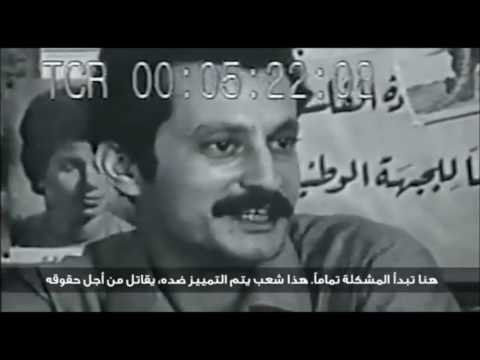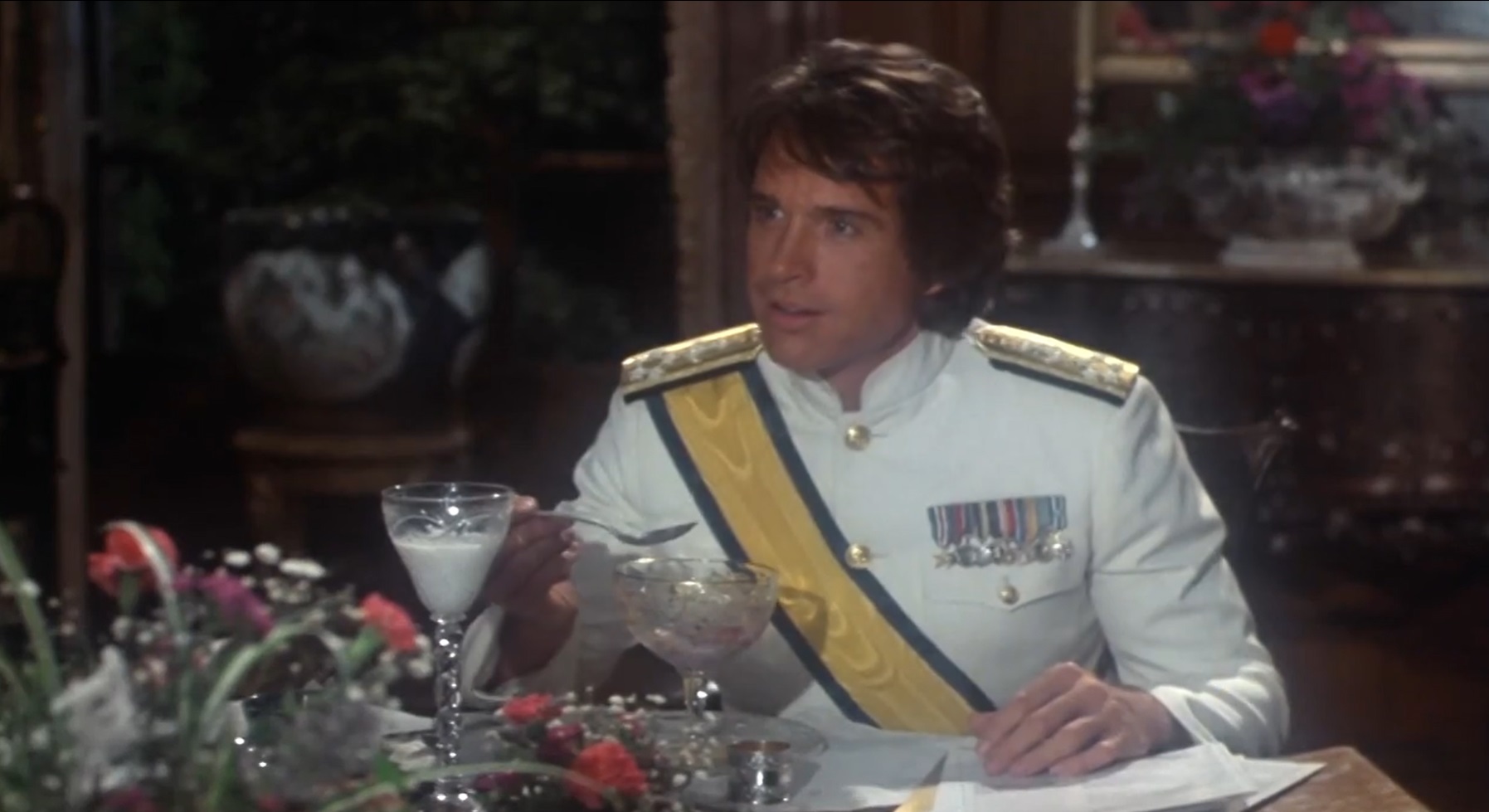
By Emad El-Din Aysha, PhD
There are many avenues you can pursue to make sense of the Israelis, it emerges, once you dabble in the second-hand book market here in Egypt. One way of getting to the bottom of them is to look at how they look at us, their reading of our past and present. What’s even more useful still is to look at how somebody else looks at us, from the Israeli perspective. Confusing I know, but worth the effort. Aan outsider opinion is always called for, even a pro-Israeli one, when it comes to exposing what an insider my hide about himself, even from himself. I learnt all this the hard way when I made the stupid mistake buying an outdated book on Israel intelligence, The Israeli Secret Service (1985) by Richard Deacon, a former British naval intelligence officer.
The book is full of lies, half-truths and deliberate obfuscations. It’s also transparently racist, and in more than one way. To be honest, the book was so offensive that I found myself preferring another second-hand find – The Arab Secret Services (1978), by former Mossad deputy chief, Yaakov Caroz.
Nonetheless, Deacon’s book is very useful, since lies often reveal more than they hide and an outsider’s opinion is always helpful Investigating the book can also help us enter into the blurred, mirror image world of the Arab-Israeli conflict, and the Israeli take on the conflict and their subconscious reading of their opponents.
The Israelis read themselves into other peoples, conflicts and episodes in history, not to mention other people’s literature, so if you want to understand the Israelis right you have to understand how they understand others. Confusing, I know, but what else can you do in the cash-strapped circumstances!
Lies, Damn Lies, and…
Richard Deacon’s book reads like a propaganda piece. From start to finish he keeps praising the Israelis, comparing and contrasting them to the exploits of other intelligence services – particularly his own in bonny old England – to the point of stretching credulity. He talks about Lotz, the German Jew the Israelis used to great effect in Egypt to track down and assassinate the German scientists working on the Egyptian missile project, and talk about what a talented man he was and how he was able to move from the military to intelligence because of inter-service cooperation. Something that supposedly doesn’t happen in the British intelligence services.
I beg to differ. John le Carré when he was in intelligence during the Second World, and after, worked in MI-5, MI-6 and military intelligence, almost all at the same time. (Inter-service intransigence is a hallmark of American, not British, intelligence). And he only mentions how the Egyptians caught Lotz afterwards, almost in passing, so he’s clearly only concerned with Israelis successes and not the successes of those against them.
Deacon talks about scientific intelligence and cryptography and how the Jews helped win the Second World War, focusing on the atomic bomb and the Enigma Code, forgetting that the Jewish scientists who helped build the bomb were handed over to the Americans by the British and that the British were just as advanced, if not more so, in nuclear physics than the Americans. As for the Enigma Code, if he’d watched that offensive movie U-571 (2000), where the Yanks claim that they broke the enigma codes for the sake of an educational action thriller, I’m pretty sure he’d be up in arms. (If you watch Churchill: The Hollywood Years, a British comedy, you also have the Americans taking the credit for the enigma code. The inferiority complex of the English, following the end of the empire, seems to be responsible here for this retrospective reading of history).
Deacon’s reading of history is jaundiced and ridiculous. He begins the book by praising the Jewish penchant for spying, quoting from the Prophet Moses (PBUH) and how he sent scouts to the land of Cannan to see what force deployments and fortifications were like, seeing this as evidence of military genius second only to the Chinese. What a load of old balls!
Scouts are the oldest trick in the book. Before they had newspapers and the internet and cameras, all you could do before you went anywhere was to send out a scouting party. Mr Deacon clearly hasn’t watched any cowboy movies and how even the whiteman relied on Indian scouts, because of their knowledge of the land and their ‘instincts’. (The Apache Indians could always tell when there was an ambush afoot). He’s also clearly never heard of the battle of Kadesh and how both parties to the conflict, the Hittites and ancient Egyptians, employed scouts. He also forgets, quite deliberately if you ask me, that Moses (PBUH) wasn’t raised a Jew. He was raised an Egyptian. He did grow up in the house of Pharaoh, after all, had access to the finest education in the ancient world, and was probably a general in the Egyptian army.
If the Jews have any expertise in the field it’s because of their internationalist credentials, absorbing all the lessons of the various host countries they’ve lived in – which is more than I can say for the Arabs, admittedly.
Deacon also trips over himself when he talks about the Haganah and Irgun and Stern Gang as self-defence groups that were put together in response to Arab attacks. The Zionist movement was a colonial movement from day and if the Arabs were being violent towards the settlers it was in retaliation for what the settlers were going, not the other way round. But the slipup that Deacon makes is admitting that the Zionists had self-defence groups with their own intelligence services in Eastern Europe – Ben-Gorian in Poland specifically – long before they immigrated to Palestine. Did they forget to bring those bands of armed men along with them at the passport visa desk, I wonder?
A none too humorous anecdote is called for here, to help set the record straight. When I was at university in England I befriended a professor whose ancestry, from his mother’s side, was half Jewish, and he showed me a magazine published in Palestine during the Mandate period, in English. It was published by European Jews in the country, Trotskyites or something like that, and they were condemning Zionist practices in Palestine – land grabs, racial discrimination and violence.
What a lot of Arabs don’t know is that there were actually two migration movements by Jews to Palestine in modern history. The first by Jews, Europeans, who just wanted to see their ancestral homeland. They were predominantly secular, non-ideological and a very benign lot, investing in the country and no different in principles than the Greeks and Italians in Egypt, and they were welcomed heartily. Then the Zionists came along and it got to the point that the original first wave of Jewish migrants became so sickened by what they saw, they went back to Europe.
We actually took that at school in history class, in the UK. It’s common knowledge. You’d think an intelligence expert like Mr Deacon would at least know that, like any third grader? He goes as far as dredging up excuses for why certain Zionists began assassinating British officials – he uses the word terrorist sparingly – and claims the British were clamping down far too harshly on the Jews, in contradistinction to the Palestinians. That is an outright lie. Here’s a snipped from le Carré’s own account of the Arab-Israeli conflict The Little Drummer Girl (1983). At one point in the storyline the Israeli intelligence man, Kurtz, meets a British counter-terrorism official and he recollects an interrogation centre from his youth: “It is where the British hanged the Jews during the Mandate time, from a noose with a leather lining to it. Only a handful, actually, and they hanged Arabs galore…”
As a Palestinian I can tell you that whereas the Zionist settlers could arm and train themselves, the average Palestinian wasn’t even allowed to carry a knife and fork, thanks to the Mandate authorities.
Dirty Bombs, or Dirty Minds?
Still, the book is useful and helps fill in empirical and conceptual gaps in our understanding of the Arab-Israeli conflict. The first reasonably positive lesson is that Deacon helps explain the contradictory impulses the Jews got from the Brits. It seems that certain British officials were responsible, people who were operating in line with official policy. It seems that, being a democracy, foreign office and military officials are given too much leeway in how they do things on the ground.
The Israelis have misinterpreted this as the British courting the Arabs while in reality it was nothing of the sort. (Deacon surmises that the Brits wanted to replicate the North Ireland model by sowing the seeds of sectarian strife in a country they would divide to their liking). A second useful titbit of information comes from one of those peculiar individuals in the field, Captain Orde Charles Wingate, who helped organise the Haganah into commando patrols to guard British installations at night time from Arab saboteurs. It was Wingate who taught the Israelis to be aggressive, apparently, and one of his pupils was none other than Moshe Dayan. Wingate did all of this under his own initiative, and was eventually promoted out of Palestine for his troubles once the British authorities got wind of his dream to help set up a Jewish army. He identified with the Jews as a downtrodden people and saw a future independent Israel as a key ally of Britain and the West, up against God knows what.
A British documentary maker once told me that General Allenby going to the shrine of Saladin and proclaiming the end of the crusades was something the man did of his own accord, and was not some triumphalist British policy stance. It seems that in fact was the case. Just as there are people like Lawrence of Arabia and Glub pasha and Kim Philby’s father, who instinctively sided with the Arabs for all sorts of personal and political reasons, there were maverick Brits like that who sided with the Israelis, again for all sorts of peculiar reasons.
Looking at what the man said, how he couched his support for the Jews, you gain insights into the pro-Israeli position of the British establishment, at one point in time, and the Americans right this minute. They see the Jews as an extension of Western civilization, pitted up in a cataclysmic, end of world time conflict with the non-Christian world. The West versus the Rest formula, to borrow a phrase from Samuel Huntington. (Bernard Lewis was actually the one who coined the phrase ‘clash of civilizations’, not Huntington). This is fool-hardly, racist and ridiculous, and only something the English dreamed up at the zenith of their empire, at the end of the 19th century, when the whole world had fallen under the purview of Western domination, with the likes of ‘Eurasian’ Russia threatening to step in and gobble up the proceeds. Seems the Americans have fallen into the same trap, through such genocidally racist notions as Manifest Destiny. It was only after the Yanks had conquered the whole of their continent-sized country that they began to feel boxed-in and vulnerable to outside attack; Kennedy’s new frontier was an externalisation of the frontier ideology of expansion. Then during the Cold War up against the Eurasian threat again, they began thinking of their country as an ‘island’ nation (another British borrowing).
The Evangelists are now the standard bearers of this imperialist heritage, seeing in the Palestinians the same kind of exterminatable obstacle as the Native Americans. Hence, the bizarre scene in Deacon’s book where Wingate’s wife threw a Bible, from a plane attached to a parachute, to a besieged Zionist outpost during the war for Palestine. (The revolutionary protestant linkup with Zionism goes back to Oliver Cromwell’s day, according to Mr Deacon, since his spy chief recruited them heavily into the service, seeing them – it seems – as naturally allies up against the Catholic church). One suspects Richard Deacon is of the same ilk, referring to the Galilee not by its accepted name but as Tiberius, its Old Testament name. He else misunderstands the Islamic name Badr, as a name of conquest, not a war of self-defence.
A third titbit of useful intelligence in this book on intelligence is the ever controversial Lotz affair, once again. It turns out that one of the things that had the Israelis deathly afraid of the Egyptian missile programme was the possibility that the Germans were working on weapons of mass destruction. Not just chemicals and biological agents but some strange kind of radioactive bomb, not a proper A-bomb, that would pollute the air and water over Israeli cities and make it impossible for them to live there. This is what is today known as a ‘dirty bomb’. So it was an Israeli idea to begin with!

If I remember correctly, from a book I’d read on Israeli intelligence when I was at university in England, the Israelis had the same fears about the Palestinians in Lebanon. That they were getting missiles and some kind of scrap radioactive substances, which is hard to believe. The notion turned out to be a chimera in the case of Nasserist Egypt, as Deacon admits, but the Israelis detonated some kind of dirty bomb over Lebanon during the 2006 summer war. And what does this tell us? That the Israelis ascribe to the Arabs what they, secretly, want to do. What they would do if they were in the shoes of the Arabs.
They always accuse the Arabs of harbouring a genocidal grudge against the Israelis, which means that it is the Israelis who are thinking in this tribal, bloodthirsty fashion.
Thanks, Mr Deacon, for figuring this out for us and pitching it for the whole world to see!
The Speed of the Stereotype
One last all too subtle point about the Lotz affair. The Israelis wanted him to take his time getting established before he started relaying intelligence to them. This is the classical ‘sleeper agent’ scenario, where a person can spend years getting comfortable and building connections before being activated. This was the exceptional to the rule, however.
Israelis always try to paper over Eli Cohen’s capture, claiming he was too busy talking to them over the coded radio, out of homesickness apparently. Deacon’s book, to its reasonable credit notes that the problem with him that they wanted results too quickly and that they’re always like this because they feel they can’t afford to wait too long, unlike the Russians who can spend years and years building an agent’s cover story. Well, the book mentioned above, by Yaakov Caroz, lampooned the Arab security services for being too eager to get results straight away from their Israeli informers. Seems that Mr Caroz was projecting problems in the Israeli intelligence service onto the Arabs – another kudos for reading the outsider Deacon. He does that quite a lot, actually, always ascribing to Palestinian guerrilla fighters certain sexual shenanigans that are not in keeping with the Palestinian national character. And yet, one Israeli guy the Arabs were able to recruit did the exact same thing, if not worse, setting up a call girl ring to ensnare fellow Israelis and set up a proper spy ring.
Richard Deacon does this to himself while extolling the historical espionage skills of the Jews, as he sees it, talking about double and triple agents who played both sides down the middle throughout modern European history. How is treason a commendable trait? How can he consider the Israelis to be a dependable lot if he portrays them as a bunch of mercenaries who’d sell out their own side at the first sign of trouble?
Might as well praise Josephus for siding with the Romans during the campaigns of Vespasian, after he’d got his own comrades to kill themselves to evade capture. In point of fact, Mr Deacon falls into the said trap of undeserved praise by revealing how the Lavon Affair was fouled up by such a two-timing traitor, a mysterious man called Paul Frank, who eventually was caught by the Mossad but got a light sentence in Israel afterwards. (Hmmm). In another slipup, Deacon tries to explain this penchant for treachery, as he sees it, as a characteristic of a ‘nomadic’ people. Funny, that’s what Westerners say about Arabs!
Europeans as stationary (miserable) peasant peoples, don’t like wandering nomads, whether Jews, Arabs or – get this – gypsies. (Who were the people that the Nazis hated almost as much as the Jews? Who are the people French racists hate almost as much Algerians?) Not to forget the way Europeans portray merchants, people who have to go where the money is instead of setting roots down and being productive in one place. Hence, the anti-Semitic Merchant of Venice stereotype, with the hooked nose. Remember what Ghassan Kanafani had to say about the Myth of the Wandering Jew, and how it was a European myth originally, concocted during the Crusades?

I’ve always argued, and I’m glad to be vindicated here, that much of Orientalism is actually thinly disguised anti-Semitism. Arabs are portrayed with hooked noses all the time and their lust for women and harems match the way David and Solomon (PBUH) are portrayed, let alone the sexually repressed Sigmund Freud – or Woody Allen for that matter. Shariah, like Jewish law, is also picked on endless along with issues of ‘assimilation’.
Even the subtitles used in Deacon’s book are ant-Semitic, such as the ‘secret protectors of Zion’ and ‘In the Footsteps of the Twelve’, which all smacks of Protocols of the Elders of Zion. Reading between the lines is such an important thing, even when it comes to unworthy texts. Especially when it comes to unworthy texts, to be more accurate.
An Arab to the Rejoinder
I suppose it’s fair at this point to bring in a ‘worthy’ text for a change, and an Arabic one at that. Namely, Dr. Qasim Abdu Qasim’s The Zionist Reading of History: The Crusades as an Example (2005). The issue, again, being teasing out little facets about the Israelis from looking at how they look at others. In this case, parallels between the Arab-Israeli conflict, as they see it, and the Crusader conflict with the Arabs and Muslims. In a key section of the book, Dr. Qasim focuses on the research of a distinguished Jewish historian of the crusades, Joshua Prawer, and the lessons he drew out of the crusades. It will (not) surprise you to know that Prawer was not concerned with the crusades in the slightest. He was concerned with the Israelis not falling into the same mistakes as the crusaders.
In summary format, the lessons were: unity among Arabs and Muslims, particularly at the time of Nour i-Din Zinki and Saladin, and by extension the role of Egypt in the conflict; the military measures taken by the crusaders, and how those policies spelled their eventual doom; the relationship between the European homeland and the Crusader kingdoms, economic, ideological and ‘demographic’. (He was also concerned with the outlying crusader fortifications, settlements cutting off and monitoring Palestinian villages).
Zionist historians of the crusades see Egypt’s entry into the conflict as the decisive factor that turned the tide against the Crusaders and, at the same time, try to downplay the accomplishments and contributions of Egyptians to the war effort. Egyptians as a people may have not been very warlike, that is true, but that doesn’t mean they didn’t make a contribution. A country the ‘size’ of Egypt doesn’t have to be terribly warlike. They can afford to send a tiny proportion the (huge) population to do their fighting for them. (That’s why they have profession armies, or so I surmise!) And that was the case during the Crusades and the Mongol invasions. There were huge numbers of volunteers from Egypt, and also the Shami countries from my own readings, swelling the ranks of the professional non-Arab warriors who lead the campaigns.
You can literally see the political-media strategies of the modern Middle East here. The so-called historians they bring on satellite TV belittling the crushing defeat of the Mongols at Ein Jalut, a victory that is seen – correctly – to be an Egyptian accomplishment.
The belittling of the military prowess of Saladin also emerges here, although Israeli and Zionist historians are at the very least willing to admit to his chivalry and humanity, which in more than I can say for so-called Arab historians who engage in transparent character assassination.
One of the things that led to the undoing of the crusader states was a lack of religious fervour in Europe, it emerges. Once the initial war was done and Jerusalem captured, the quest for the holy land gradually began to die down. Even the much vaunted Third Crusade, of Richard the Lionheart, was a ramshackle affair with participants pulling out at the last minute. That’s why the crusaders gradually resigned themselves to their remaining enclave in the North, in Accra and Lebanon. They couldn’t get the finances and military muscle from the homeland to resume the Crusader kingdoms of yonder. Other problems included the fact that Europeans just weren’t interested in migrating in mass to the holy lands, once they’d been conquered.
Without ideological fervour and constant demographic injections, it was just a matter of time before the crusaders gave up or met a foe they couldn’t counter and began packing their bags themselves. Again, you can ‘see’ connections with the present day world in this jaundiced reading of history. When Israeli historians write about lack of support for the crusader kingdoms what they’re really doing is exposing their anxieties about what could happen to Israel if the colonial West stopped supporting their country. The place would collapse like a house of cards, in other words.
No wonder the Israelis are so terrified of BDS, and why they are so concerned about the demographics of occupied Palestine, with Jewish birth rates going down and Palestinian birth rates going up, up and away. Hence, the endless attempts to evict the 1948 Palestinians and the Palestinians in Al-Quds, as Mr. Netanyahu is trying to do as we speak.

We can add that Mr Prawer also went out of his way to link the history of the crusades to the modern history of Western imperialist expansion, a tenuous connection at best. At school, in the British educational system again, we took that the crusades were a complete and utter waste of time as they accomplished nothing and had not lasting effects. Again, Mr Prawer is making a false connection between Israel, a product of Western imperialism, and the crusades, in an effort to keep the West embroiled in the region to prop up the Western house of cards. Other parallels abound, to cite Dr. Qasim, since crusaders took it upon themselves to shave off their beards and moustaches so that they would have nothing in common with the Arabs.
Interestingly, Mr Prawer was very concerned with integrating the Sephardi Jews into Israeli society, while quite happy with the apartheid nature of crusader society.
So there’s something else we can learn from this little intellectual exercise, namely, how to counter the Israeli media blitz directed against us and eventually turn the tables against them. All we have to do is quote their own thinkers to prove our case. Like I said, there’s nothing like reading second-hand books, a nice cost effective strategy to deal with the Arab-Israeli conflict. And in a country like Egypt, what else is there to do when you’re using the public transportation system!!






